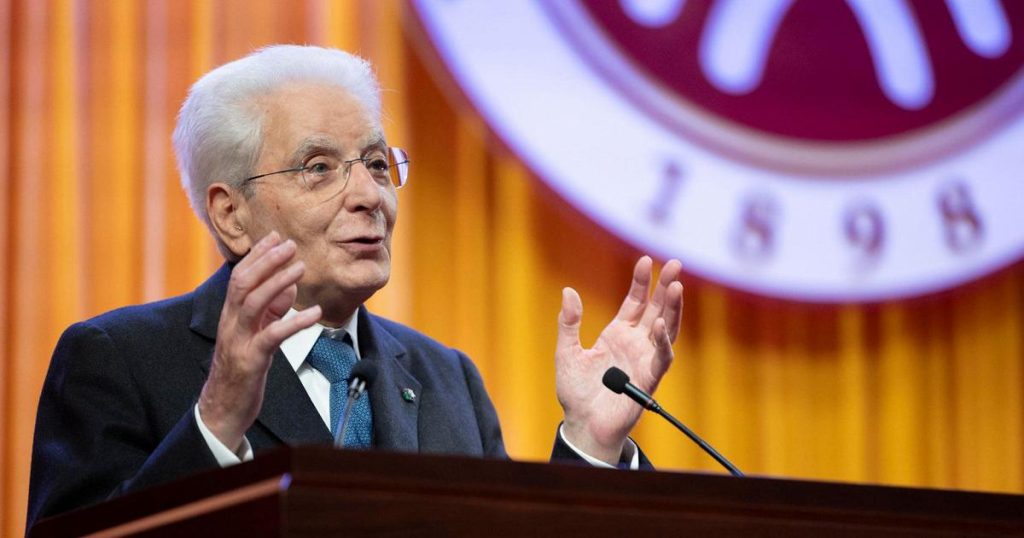Italian President Sergio Mattarella emphasized the importance of respecting Italy’s sovereignty and its Constitution in response to Elon Musk’s comments regarding a court decision to suspend the detention of migrants in Albania. Musk criticized the judges involved in the decision, questioning whether Italy is truly a democracy or an unelected autocracy. His comments sparked further debate on social media, with some supporting Musk’s perspective and others defending Italy’s judicial system.
The Italian government reiterated the need to protect the country’s sovereignty and independence from foreign interference. President Mattarella’s statement was supported by the Undersecretary to the Presidency of the Council, Giovanbattista Fazzolari, who emphasized the importance of preserving Italy’s autonomy. The issue of illegal immigration and the court’s decision to prevent the expulsion of migrants sparked a heated debate on social media platforms.
Various political figures expressed their opinions on Musk’s comments, with some condemning his interference in Italian affairs and others supporting his views. Elon Musk’s criticism of the Italian judges was seen as dangerous and unacceptable by some, who viewed it as a threat to democracy. The conflict between the government, the judiciary, and external influences highlighted the challenges of balancing power within a democratic system.
The involvement of a powerful foreign figure like Elon Musk in Italian affairs raised concerns about the influence of tech moguls on political decisions. The potential impact of Musk’s comments on the country’s legal system and democratic processes was a cause for alarm for some individuals. The clash between different branches of government and external actors added complexity to the ongoing debate surrounding migration policies and legal decisions.
The decision to suspend the detention of migrants in Albania by the Italian court triggered a series of reactions from politicians, legal experts, and advocacy groups. The complex issue of determining safe countries of origin for migrants was brought into the spotlight, emphasizing the challenges faced by judges in interpreting and applying European Union laws. The need for clarity and consistency in legal decisions was underscored by the ongoing debate on migration policies and border security.
The Italian government’s decision to challenge the court ruling at the European Court of Justice demonstrated its commitment to upholding national security interests and protecting the rights of its citizens. The ongoing legal battle over the detention of migrants highlighted the importance of international cooperation and legal frameworks in addressing complex migration issues. The clash between national sovereignty and judicial decisions underscored the delicate balance between protecting individual rights and maintaining law and order.


